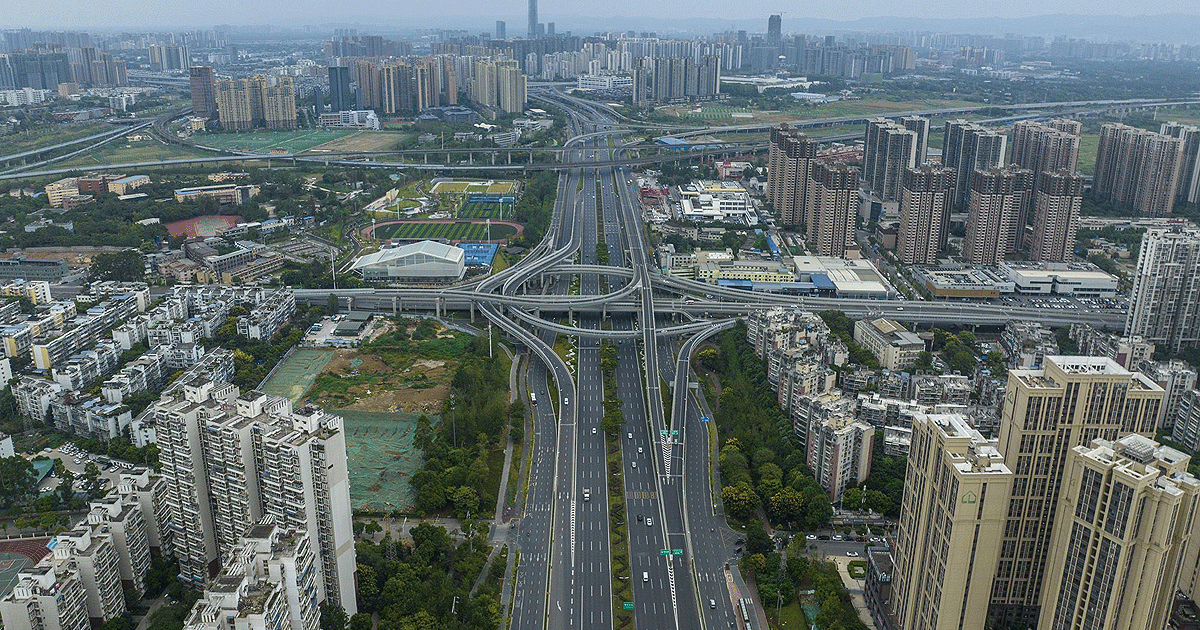
Volkswagen Group and Foxconn Technology Group are keeping workers on-site at factories in Chengdu after the Chinese metropolis locked down 21 million residents to contain a COVID-19 outbreak.
The German automaker’s factory, jointly operated with local partner China FAW Group Co., entered a so-called “closed loop system” Thursday evening to maintain production, a company representative said on the phone on Friday, without elaborating. Foxconn, the largest assembler of Apple Inc. devices, is also adopting the method at a facility that makes iPads there, according to a person familiar with the decision.
Robert Bosch, one of the world’s biggest auto parts makers, has shifted to a closed-loop operation at two manufacturing sites for power tools and automotive components in Chengdu, with office staff working from home, a spokeswoman for its China business said.
First used during the Beijing Winter Olympics as a way of keeping athletes and support staff separate from the wider population, closed loop, or factory bubble, is a China invention used to keep its economy running amid punishing efforts to stamp out Covid’s spread. Closed loops typically require workers to travel from on-site accommodation to the factory and back, strictly avoiding contacts with outsiders, and be tested regularly for COVID. Companies such as Tesla Inc. have even kept their workers sleeping on the floor during the Shanghai lockdown earlier this year.
There’s pressure to keep factory operations running because the lockdown comes just days after the city moved past a two-week power crunch that shut down business operations, as household energy availability was prioritized. With the triple whammy of drought, floods and the Covid lockdown this summer, Chengdu’s economy, which makes up 1.7 percent of China’s national gross domestic product, is being dealt a serious blow.
Massimo Bagnasco, chair of the southwest China chapter, European Union Chamber of Commerce in China, said government guidance is that a company can operate in a closed loop system if it’s considered important to the community. In addition, businesses would have to satisfy local authorities that they can successfully manage the loop in a way that wouldn’t pose a threat to public health.
“Yesterday was kind of a messy time,” he said, adding a large majority of his members won’t be able to operate under the loop system as they may not belong to a category that’s viewed as fundamental to daily life. “Everyone was trying to understand what they could do from an operational point of view of their business, as well from the individual point of view.”
While the closed loops have allowed some supply chains to continue operating amid lockdowns, they have also created problems of their own, like workers revolting over poor living and working conditions. The system has also been unable to prevent widespread disruption to global supply chains from the strictures of COVID Zero.
Chengdu, the capital of Sichuan province, is the biggest city to shut down since Shanghai’s bruising two-month lockdown starting end-March. It also functions as a manufacturing hub in southwestern China for companies including Geely Automobile Holdings and Toyota Motor Corp.
Volvo Car AB’s Sichuan plant, now under the parent group of Geely, has suspended production due to the lockdown. The parent company said it would closely monitor the situation. In the meantime, Hitachi’s two Chengdu plants that manufacture elevators and escalators are operating at reduced rates due to an order from authorities, Ryuhei Tanaka, a spokesman for the Japanese company said by phone.